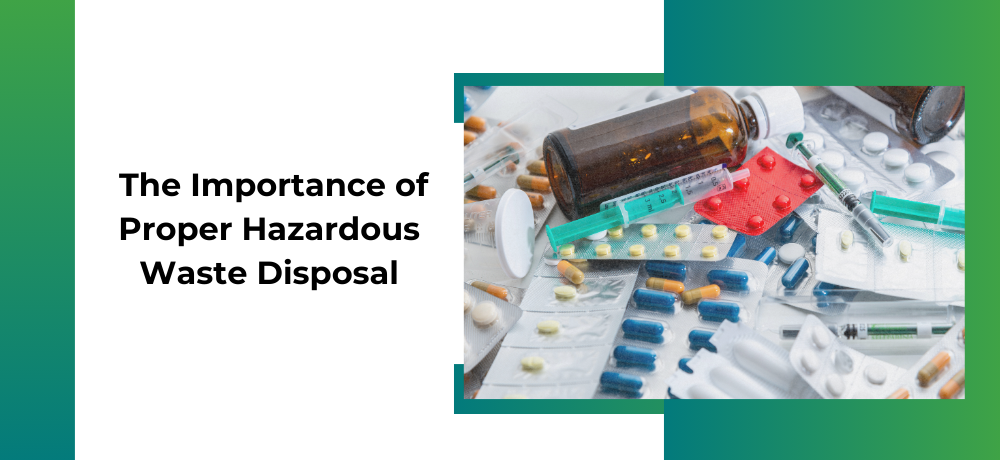
The Importance of Proper Hazardous Waste Disposal
- Medical Biowaste Solutions, Inc.
Categories: Hazardous Waste Disposal , Waste Disposal , Waste management
Proper hazardous waste disposal is not just a legal requirement; it's a fundamental responsibility for businesses. In this blog, we will delve into the significance of ensuring the correct disposal of hazardous waste and the potential consequences of neglecting this crucial aspect.
Environmental Preservation through Rigorous Hazardous Waste Management:
The importance of proper hazardous waste disposal cannot be overstated when considering its profound impact on environmental preservation. Hazardous waste, often laden with toxic substances, has the potential to induce irreparable harm to ecosystems. The meticulous management of such waste is critical to prevent soil contamination, water pollution, and air degradation. By mitigating these adverse effects, we contribute to the overall health and sustainability of our environment.
Safeguarding Public Health:
Hazardous waste disposal plays a pivotal role in safeguarding public health by minimizing the risks associated with exposure to toxic substances. The improper handling and disposal of hazardous waste can lead to dire health consequences, ranging from respiratory ailments to long-term chronic conditions. A comprehensive and responsible approach to hazardous waste disposal is, therefore, not just an environmental imperative but a crucial aspect of public health management, ensuring the well-being of communities and future generations.
Legal Compliance and the Imperative for Stringent Waste Management Regulations:
The landscape of hazardous waste disposal is intricately tied to a web of stringent laws and regulations. Governments and regulatory bodies have established these frameworks to enforce responsible waste management practices. Adhering to these legal obligations ensures not only the avoidance of penalties and fines but also underscores a commitment to ethical corporate behavior. By meeting or exceeding regulatory standards, industries contribute to the broader goal of creating a sustainable and responsible waste management ecosystem.
Resource Conservation and the Role of Hazardous Waste Recycling:
Within the realm of hazardous waste management, an often overlooked aspect is the potential for resource conservation through recycling. Many hazardous materials harbor valuable resources that can be salvaged and repurposed. Proper disposal practices involve the meticulous identification and separation of recyclable materials, contributing to the broader ethos of resource conservation. This, in turn, supports the principles of a circular economy, where waste is not merely discarded but becomes a valuable input for subsequent production cycles.
Long-Term Sustainability: A Holistic View of Responsible Waste Management:
The significance of proper hazardous waste disposal extends far beyond immediate environmental and health considerations; it is a fundamental pillar of long-term sustainability. By embracing responsible waste management practices, we contribute to preserving ecosystems and mitigating the potential long-term consequences of haphazard waste disposal. This commitment aligns seamlessly with global efforts to address climate change, reduce overall pollution levels, and establish a resilient and balanced environment for future generations. In essence, the pursuit of long-term sustainability necessitates a holistic and conscientious approach to hazardous waste management.
Prioritize the safety of your business and the environment. Contact Medical Biowaste Solutions today for expert hazardous waste disposal services that align with regulatory standards and industry best practices.
To learn more about the solutions we offer, please click here. To contact us, please click here or call us at (888) 420-8663.
